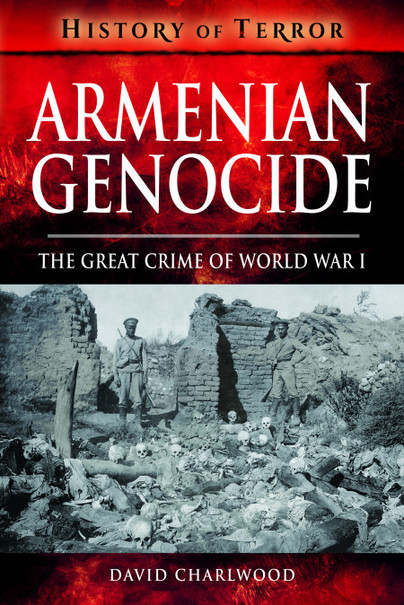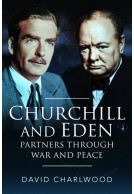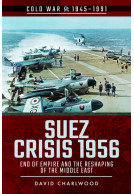1920: A Year of Global Turmoil (Hardback)
Imprint: Pen & Sword History
Pages: 288
ISBN: 9781526729651
Published: 14th October 2019
History Hit
An article written by the author for Dan Snow's History Hit: 'Not our finest hour – Churchill and Britain's forgotten wars of 1920.'
(click here for international delivery rates)
Order within the next 11 hours, 13 minutes to get your order processed the next working day!
Need a currency converter? Check XE.com for live rates
| Other formats available | Price |
|---|---|
| 1920: A Year of Global Turmoil Paperback Add to Basket | £11.89 |
| 1920: A Year of Global Turmoil ePub (1.5 MB) Add to Basket | £6.99 |
Violent uprisings are tearing apart the Middle East, nationalism is on the march in Europe and an unlikely presidential candidate is running for election in the US on a populist platform to put 'America first'. The year is 1920.
1920: A Year of Global Turmoil tells the story of twelve months that set in motion one hundred years of history. From America to Asia, the events of 1920 foreshadowed the decline of empires, the coming of another global conflict and the rise of an American president who would change his country's relationship with the world. Weaving personal accounts with grand narrative, it vividly illuminates a past which echoes the present.
Charlwood's yearbook is a representation of the road to misfortune. It's interesting to read.
Hist Mag
Read the full Polish review here
Remarkable overview of the year 1920 and global political events. Seeing the sheer volume of events that the world made it through in 1920 gives me a bit of hope for 2020....and I'm just going to ignore how much of the events of 1920 led right into WWII.
NetGalley, Jennifer Ruth
The book takes a bit to get started as it has to give a lot of the prior to 1920 politics but once it gets going it does a very nice job of taking you through US, Europe, Mid-East and Russian activities throughout the year in an orderly fashion that somewhat ties them into the broader framework. It's a way better inter-relation than any textbook I've read has done.
I highly recommend this work to any history reader who wants to consider what keys might have led to such a chaotic century. Charlwood makes a strong argument for 1920 being pivotal rather than simply World War I in general. How the powers acted, or didn't act, how the expected revolutions and revolts that result from major armed conflict were either misunderstood or completely ignored. There is plenty here to propel the story and make the argument, and there is also plenty of pointers for interested readers to delve deeper into whatever aspects of 1920 most interest them.
NetGalley, Jack Messer
I’ve actually learnt a lot from this book and I actually plan to go back and re-read it, so it can all sink in properly. In a year when there were so many hopes for a better future, it is amazingly gripping as it almost predicts or foretells what we are going through in today’s world with various problems. This was an excellent book, well written and thought out but probably not one for those that looking to go in-depth on a particular topic but it certainly would prove to be a good springboard to go on to something further. A very good 4 out 5 stars read.
UK Historian
Editor's Choice
The Armourer, April 2020
This is an eye-opening, sweeping account of the world as it was, 100 years ago, that was, depressingly, very similar to how it is now.
Some of these conflicts are still remembered and others are largely forgotten, such as the revolts in Waziristan and Iraq and the destruction of Armenia. However, as Charlwood points out, they are the origin of several current conflicts. This is a concise, informative book and very readable.
Edward James, The Historical Novel Society
Read the full review here
Some of these conflicts are still remembered and others are largely forgotten, such as the revolts in Waziristan and Iraq and the destruction of Armenia. However, as Charlwood points out, they are the origin of several current conflicts. This is a concise, informative book and very readable.
Edward James, The Historical Novel Society
Read the full review here
David's book makes chilling reading.
Books Monthly
The illustrations and binding of this book are to Pen & Sword’s usual high standards. I was particularly moved of a shocking picture of the devastation of Cork City by British forces (which included the Black and Tans, still loathed to this day in Ireland for the atrocities they committed, with the tacit approval of David Lloyd George, the British Premier). That this happened a short distance from London tells us a lot.
Hellbound, Steve Earles
Overall, if History was given the priority it deserves, this book should be on school courses, I can’t recommend it enough (I must also draw your attention to his book on the Armenian Genocide, a must-read). This book would also make for a fine TV series. David has a talent for explaining complicated facts in an accessible and entertaining fashion, the hallmark of a truly great writer.
Read the full review here
History writing at its best, 1920 informs, entices and challenges, teasing out extraordinary parallels between our current world and that of a century ago. The style is crisp yet authoritative, engaging and informative, making connections between seemingly disparate events and reminding us peace is not a given, but a goal to be prized and worked towards.
Tim Butcher, author of Blood River
From Ireland, to Poland, to Iraq, Armenia and Afghanistan, Charlwood immerses the reader in the events of a tumultuous year in which hopes for a new post-war order everywhere crumble. Well-researched and engagingly written.
Matthew Parker, author of Monte Cassino
A remarkable panorama ... History at its best, narrated in gripping style.
Peter Caddick-Adams, author of Sand and Steel
David's book makes chilling reading.
Books Monthly
The illustrations and binding of this book are to Pen & Sword’s usual high standards. I was particularly moved of a shocking picture of the devastation of Cork City by British forces (which included the Black and Tans, still loathed to this day in Ireland for the atrocities they committed, with the tacit approval of David Lloyd George, the British Premier). That this happened a short distance from London tells us a lot.
Hellbound, Steve Earles
Overall, if History was given the priority it deserves, this book should be on school courses, I can’t recommend it enough (I must also draw your attention to his book on the Armenian Genocide, a must-read). This book would also make for a fine TV series. David has a talent for explaining complicated facts in an accessible and entertaining fashion, the hallmark of a truly great writer.
Read the full review here
History writing at its best, 1920 informs, entices and challenges, teasing out extraordinary parallels between our current world and that of a century ago. The style is crisp yet authoritative, engaging and informative, making connections between seemingly disparate events and reminding us peace is not a given, but a goal to be prized and worked towards.
- Tim Butcher, author of Blood River
From Ireland, to Poland, to Iraq, Armenia and Afghanistan, Charlwood immerses the reader in the events of a tumultuous year in which hopes for a new post-war order everywhere crumble. Well-researched and engagingly written.
- Matthew Parker, author of Monte Cassino
A remarkable panorama ... History at its best, narrated in gripping style.
Peter Caddick-Adams, author of Sand and Steel
About David Charlwood
David Charlwood obtained a First Class Honours Degree in history from Royal Holloway, University of London, and has worked as an international journalist and in publishing. His historical research has been published in the British Journal of Middle Eastern Studies and he has been a contributing historian for BBC radio. He is the author of four popular history books, including the acclaimed 1920: A Year of Global Turmoil.
Armenian Genocide The Great Crime of World War I (Paperback)
Crammed into cattle trucks and deported to camps, shot and buried in mass graves, or force-marched to death: over 1.5 million Armenians were murdered by the Turkish state, twenty years before the start of Hitler’s Holocaust. It was described as a crime against humanity and Turkey was condemned by Russia, France, Great Britain and the United States. But two decades later the genocide had been conveniently forgotten. Hitler justified his Polish death squads by asking in 1939: ‘Who after all is today speaking about the destruction of the Armenians?’ Armenian Genocide is a new, gripping short…
By David CharlwoodClick here to buy both titles for £26.59


















